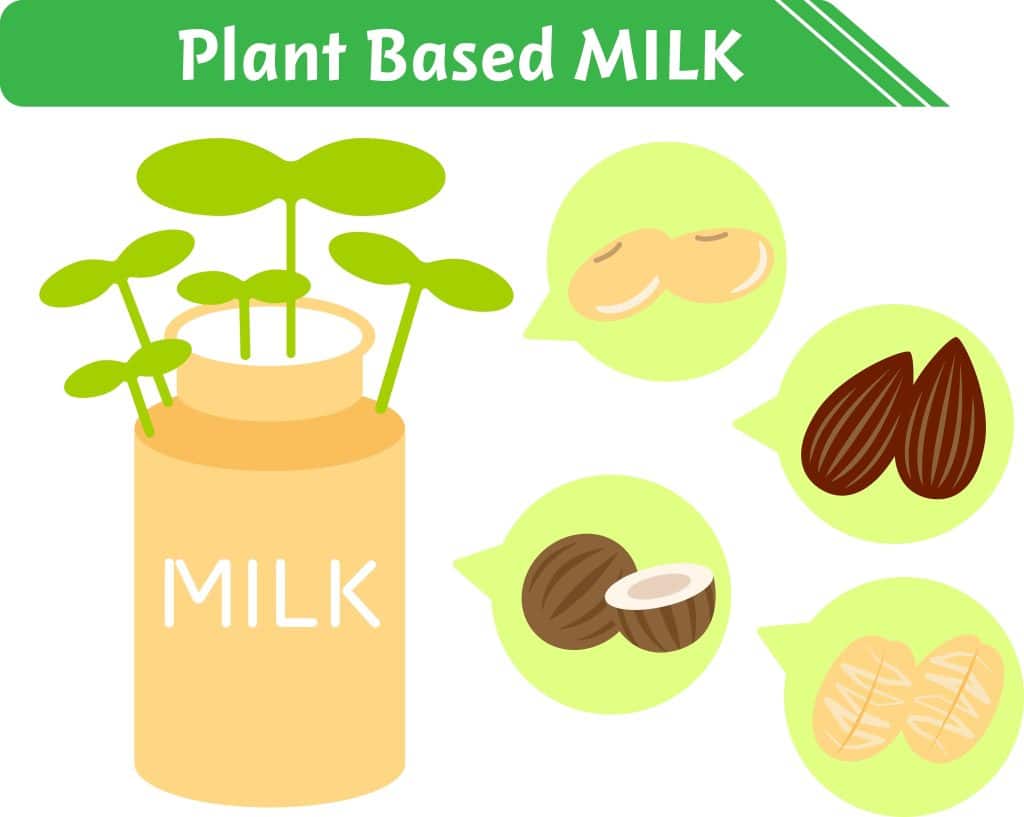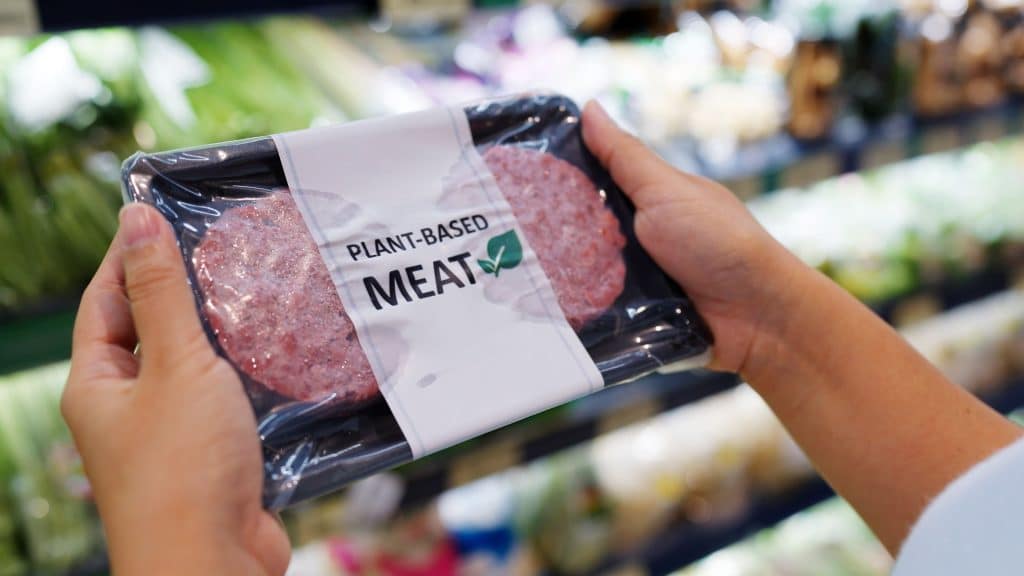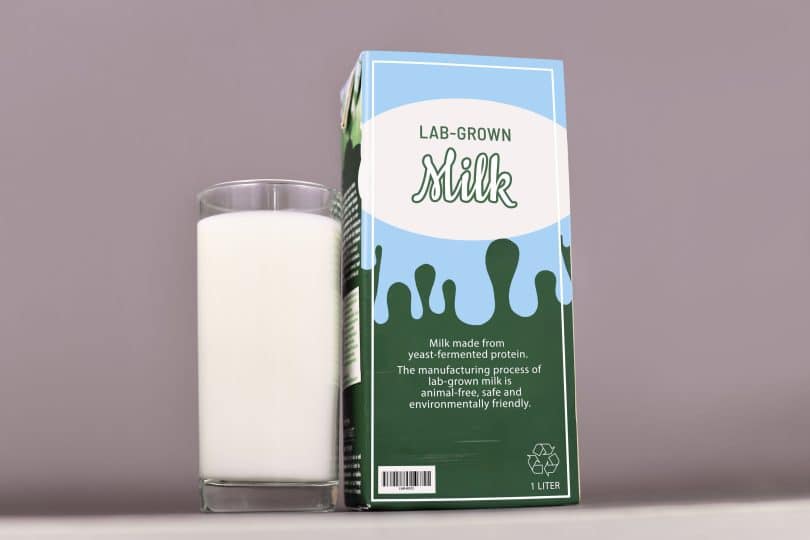It’s probably not the headline it could be, because we’ve already been introduced to synthetic meat, and there are plenty of non-dairy milks on the market. Even so, a new synthetic version of milk is under creation, soon to be on a store shelf near you. So, what is the stuff, and are there advantages to this new fake milk? Or is this another example of the synthetics industry unnecessarily taking over for no good reason?
First synthetic meat, and now synthetic milk is rearing its head. Should we get ready to gulp it down? Welcome to an entirely independent news publication focusing on the burgeoning cannabis and psychedelics industries (and some other stuff too). We provide the Cannadelics Weekly Newsletter for updates on breaking news and ongoing stories, and to offer our readers exciting deals on a range of products from vapes and other smoking paraphernalia, to edibles and cannabinoid products including Delta 8 & HHC. Head to our ‘best of’ lists for more info, and please purchase the products you are most comfortable using.
What’s the difference between real and synthetic?
These days we have products sold to us that come from nature, right alongside products that are made in a lab. What’s the ultimate difference? Sometimes not that much in the final product. A natural product is one made by nature, whether in the form of an animal, plant, or mineral. A synthetic is something that is made by man, or for which man institutes synthetic processing. Sometimes the final product is identical, and sometimes it’s not.
According to dictionary.com, a synthetic is: “something made by a synthetic, or chemical, process; substances or products made by chemical synthesis, as plastics or artificial fibers; and/or the science or industry concerned with such products”. That a product is synthetic, doesn’t mean it can’t have a natural counterpart that it was made to mimic. For example, when delta-9 is extracted directly from the cannabis plant, it’s a natural compound. When it’s made by transforming CBD into delta-9, it must undergo chemical processing, making it synthetically-made.
There is a big debate in the cannabis world over the use of synthetics. While they are often demonized for their danger (which is related to added compounds, not those derived from the cannabis plant or made synthetically based on it), they are also the basis for all pharmaceuticals, meaning we’re warned about the same thing we’re sold.

The world of synthetics goes way beyond cannabis compounds. Besides many product markets coming from plastics, it even affects other products. Think of that Prada purse your friend got that fell apart after two weeks, or the Dolce & Gabanna top bought from a street corner, that the dye leaked off of. Fakes markets are also synthetics markets, and they’re huge. If a brand name version of something exists that sells well, you can bet there’s a fake version sold somewhere out there.
In terms of synthetics for food, many years ago we were introduced to fake meat, a strange concept that not everyone caught onto, and which is still in its infancy in terms of an industry. For many of us, this idea is more a point of confusion, than some savior to the food industry. It comes with many issues which are not worked out, and which are cause for many health concerns. Yet, even with synthetic meat still under construction, apparently, the next big thing on the horizon is the introduction of synthetic milk.
What is synthetic milk?
Synthetic milk is a liquid made synthetically that mimics milk, but which doesn’t come from a cow, or any other animal. In fact, no animal is used in the making of this milk, which in and of itself is a plus for those who support animal rights, veganism, or who are just appalled by the horrors of our current industries. It also makes it different from fake meat, which is not 100% cruelty-free.
So how is this synthetic milk made? Through a process called ‘precision fermentation’. This process is different from the regular fermentation process that gives us yogurt, cheese, bread, and alcohol. In that process a substance is converted with microbial cells in an oxygen-free environment. Precision fermentation is a kind of biomass fermentation, and involves mycelium, the same thing used by mushrooms to grow and share information. Fungal mycelium, and its fiber branches, are cultivated in tanks, using sugar and other nutrients that promote growth.
This is done through genetic engineering of the microbes, which are reprogrammed with new genetic information that instructs specific proteins to produce specific molecules. The reprogramming makes the cells into immortal cells, which act like cellular factories and can continue to reproduce new cells indefinitely, unlike regular cells which eventually stop. The mycelium itself is harvested, cut, and flavored to make different products made of mycoprotein (a protein made by fungi). The fungal mycelium offers a good source of protein and fiber, as well as other vitamins, and minerals. In this case the mycelium is not used to grow something else, like mushrooms, but is the the main ingredient, meaning the protein doesn’t have to be extracted or purified.
Besides the cruelty-free appeal, there are a couple major benefits. For one, no hormones or antibiotics are necessary. And second, synthetic milk doesn’t lead to the same negative environmental factors. For years we’ve been told that cows passing gas (methane) is one of the leading causes of greenhouse gases that promote global warming. This makes no sense (no matter how much its repeated), as animals have been grazing all through history without it causing a problem. The bigger issue, is human input in the form of concentrated animal feeding operations (CAFOs), which are where most meat and milk come from, and which are known for their incredibly negative environmental impact. This milk can cut down on the number of those. But realistically, so can any other fake milk.
Isn’t fake milk already popular?

Truth is, we already deal a lot in fake milk. Think of how popular almond milk and coconut milk are. You can make milk-like substances from many different plants, and this new synthetic milk is technically plant-based as well. Other plant-based milks don’t require genetic modification though, and are entirely different, and made naturally from a plant.
In a way, this idea of going away from real milk makes more sense, than say, synthetic meat. Whereas humans are known to eat meat throughout their lives, milk should only be consumed in infancy. It’s been known for some time that there is no need to consume it past that point, and humans are the only species to continue doing so into adulthood. Even the often touted line that milk is necessary for strong bones has never been proven, and nor does it make sense, as its not a part of standard nature.
Yet for all this lack of need, the milk industry is pushed constantly, and up to 80% of the global population regularly consumes dairy. Not only is this not necessary, but some research goes as far as to say it comes with the added detractions of promoting cancer in adults, as well as leading to more bone fractures, which goes directly against the logic of making bones stronger.
When it comes to the milk industry, neither the real thing, nor the new synthetic version, sound particularly appealing. The plant-based options are the best ones in terms of health and medical issues. Since these fake versions come from plant sources, they do offer health benefits, that make them better than standard dairy milk. As most alternatives are produced from high fat or high protein sources, they provide good options for a healthy beverage, and without the issues of regular milk, including lactose intolerance, or the issues of synthetic milk, which comes chock full of GMOs.
What about synthetic meat?
Fake meat has been around for awhile, but a new version was introduced about a decade ago. If you go into most supermarkets, there is an array of fake meat options, like tempeh burgers, soy hotdogs, and other plant-based products. Most of these offer a (sometimes) tasty alternative, but are not necessarily meant to taste just like regular animal meat. In the world of fake meat, ‘cultured meat’ is the newer addition meant to mimic meat, but which is grown in a Petri dish.
This meat is produced from animal cells that are cultured, meaning it really is meat. It’s just not meat that grows as part of an animal. The cells are grown in a bioreactor (like the milk), and arranged in exactly the same, or very similar way, so that they mimic the actual feel and texture, as well as the nutritional capacity, of regular meat. The cells are fed a cell culture medium which is oxygen-rich, and comprised of amino acids, glucose, vitamins, and inorganic salts. It’s also supplemented with proteins and other things to promote growth, including hormones. This last part is dicey because we don’t know how far a particular company will go with it, and added hormones are already an issue with the standard meat industry.

Cultured meat is advertised for being environmentally responsible, cruelty-free, and antibiotic-free. However, it’s not as cruelty-free as advertised. For one thing, cells must be harvested, which means some animals are hurt, as opposed to plant-based meat where none are. Plus, growing mediums can involve the use of fetal bovine serum, which is extracted from a cow fetus when the mother is slaughtered. The newer alternative is to use a bioreactor to create immortal cells through genetic engineering, so the cells continue to proliferate endlessly. That this is an entirely GMO industry is a major detraction. Genetic engineering, and genetic constructs are not flushed out, and can be associated with causing cancer, as well as other health issues.
Truth is, very little is known about how the processes used to make synthetic meat and milk affect human health in the long run. But with the use of bioreactors and GMO methods, it stands to reason that there could be problems. One of the main ones? That genetically-modified immortal cell lines show a similarity to cancerous cells, including overgrowth of the cells. And though it’s great the meat has no antibiotics, there is nothing saying that it won’t be inundated with hormones.
Conclusion
It’s more common to find synthetic clothes than natural fiber clothes today. It’s even common for furniture to come from plastics, even if it looks like wood. Most of our food barely resembles food anymore, with ingredient lists that contain long chemical names. Its not shocking that synthetic meat and synthetic milk are making their way in. At least when it comes to fake milk, the product being replaced, is one we don’t need anyway. Maybe the better question is whether synthetic milk offers us anything better than the nut milks that already took over.
Perhaps the biggest takeaway from this story, is simply the idea that we’ve become so accustomed to synthetics, that we no longer question a fake industry taking over a real one. Sure, it’s great to do away with an industry that unnecessarily hurts animals for a product we don’t need, but what about where it does matter? Have we become so desensitized to fake, that we’re totally cool with it replacing the real thing?
*As a positive side note, it’s nearly impossible to find the words ‘genetically-engineered’ in relation to synthetic milk or meat, though they are most certainly genetically-engineered products. Perhaps this indicates the public is a little hesitant about such processes, leading marketers to attempt to separate the products from the terms, in the minds of the people.
Hello readers! Thanks for stopping by Cannadelics.com, a top news platform for fully-rounded coverage of the cannabis and psychedelics landscapes. Check-thru the site daily for important updates on breaking stories, and subscribe to the Cannadelics Weekly Newsletter, for first crack at the latest news and the best product offerings.









